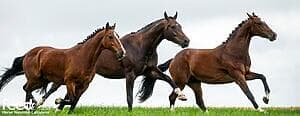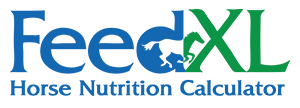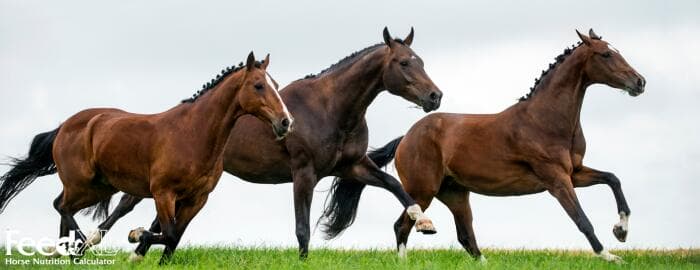Vitamins & Minerals in Horses

Is Your Horse Getting What They Need?
With the change of season, now is the perfect time to check that your horse’s diet is covering all the essentials. With changes in pasture quality—both in volume and nutritional value—it’s more important than ever to ensure your horse is getting everything they need to stay healthy and thrive.
One of the most critical areas to focus on is vitamins and minerals. But how do you know what your horse actually needs? And why does it matter so much?
The Hidden Danger of Mineral Deficiency
Mineral deficiencies, especially long-term ones, are one of the most common yet overlooked issues in equine nutrition. These deficiencies often develop silently, with no immediate signs, until something goes seriously wrong.
Think of it like termites in a house—you often don’t notice they’re there until the structure is already compromised. The same goes for nutritional deficiencies. Just because you can’t see them doesn’t mean they’re not doing damage. And once the signs become obvious, the issue may already be severe.
If you’re not supplementing your horse with the right nutrients—either through fortified feeds or carefully chosen supplements—there’s a high chance they are lacking something essential. And that deficiency could eventually lead to serious health problems.
Common Symptoms of Deficiency
Vitamin and mineral deficiencies can show up in many ways. Here are some examples:
- Copper deficiency – impaired normal cartilage and bone development, increasing the risk of developmental orthopaedic disease in young horses.
- Zinc deficiency – poor hoof quality and white line disease and impaired wound healing (including of gastric ulcers).
- Vitamin E deficiency – impaired muscle function, lowered immune function and poor fertility.
- Magnesium – low dietary magnesium can induce behavioural changes including anxiety, irritability and nervousness.
- Calcium and/or phosphorus deficiency – brittle bones, big head disease and impaired nerve and muscle function.
These symptoms may take months or even years to become visible, which is why prevention is so important. Unfortunately, we often jump to treat symptoms—like adding joint or calming supplements—without addressing the real cause: poor nutrition.
Nutrition Comes First
Good nutrition should always be the foundation of your horse’s care. There’s little point giving a joint supplement if the horse is chronically deficient in copper and zinc, two minerals essential for joint health. Nearly every horse will require some level of vitamin and mineral support. Without it, imbalances are almost inevitable—and so are the consequences.
So, what nutrients are essential, and what do they actually do?
Key Vitamins and Their Roles
- Vitamin A: Crucial for vision, cell health, and growth. Horses get it from carotene in green forage, but it must be managed carefully to avoid toxicity from over-supplementation.
- Vitamin D: Needed for calcium absorption and bone health.
- Vitamin E: A key antioxidant that supports muscles and the immune system. Found in fresh forage but often needs to be supplemented, especially for horses in heavy work.
- Vitamin C: Not essential under normal conditions, as horses can make it themselves. However, in times of stress or illness, extra support may be beneficial.
- B Vitamins: A group involved in energy metabolism and general health. B-vitamins are synthesised in the gut as a by-product of fibre fermentation and this generally meets requirements for horses at maintenance, however horses in work have higher requirements. Deficiencies are possible, especially if gut health is compromised.
Essential Minerals
- Calcium: Vital for bone strength, muscle contractions, and nerve function. Must be balanced with phosphorus.
- Phosphorus: Supports energy production and skeletal development. Too much or too little in relation to calcium causes problems.
- Magnesium: Important for nerve function and muscle relaxation. Deficiency can lead to tension, anxiety, and poor recovery.
- Zinc: Supports skin, hooves, and immunity.
- Copper: Crucial for joint health, connective tissue, and coat colour.
- Selenium: Supports antioxidant defences and immune function. Levels in forage vary widely, so supplementation must be tailored to your region to avoid both deficiency and toxicity.
Prevention is Easier Than the Cure
The good news? All of these issues are preventable.
Rather than spending months—and often thousands of dollars—trying to fix problems caused by deficiencies, you can prevent them altogether with the right approach to nutrition. It starts with knowing exactly what your horse needs and making sure those needs are met.
That’s where FeedXL comes in. It helps you accurately assess your horse’s diet and identify any nutrient gaps. You can see which vitamins and minerals are missing and get clear, data-based suggestions for which feeds or supplements (out of the thousands available) will best meet those needs.
It also prevents over-supplementing “just in case,” which is a common and expensive mistake. At best, it wastes money—at worst, it can lead to toxicities just as harmful as deficiencies.
Final Thoughts
Just because you can’t see a nutritional problem doesn’t mean it isn’t there. And the longer it goes unnoticed, the more damage it can do. Reviewing your horse’s diet now —could be one of the best things you do for their long-term health and performance.
Don’t wait for the warning signs. Give your horse the nutritional foundation they need to stay strong, happy, and healthy.



